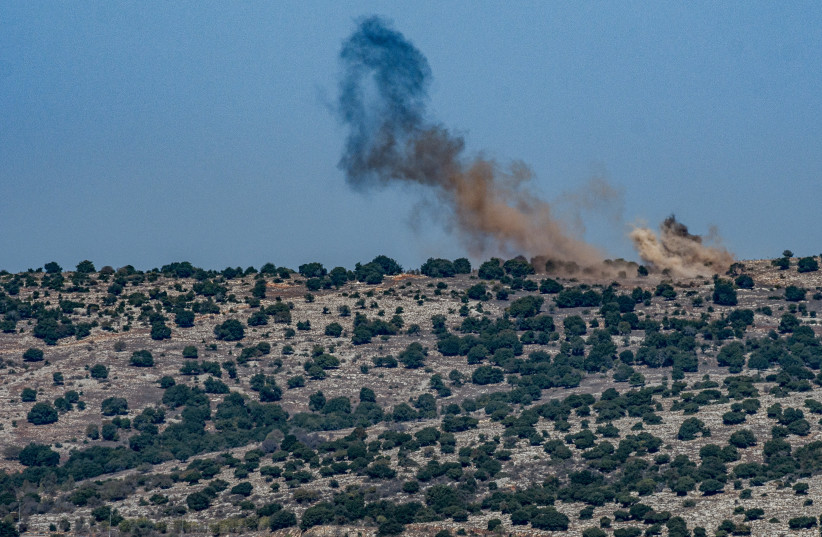One of the greatest questions of this war has been: Could Israel end up fighting a war on two fronts – Hamas to the south and Hezbollah to the north? This question only deepened with Hezbollah’s continued attacks since October 7, at the highest frequency so far since the Second Lebanon War in 2006.
This means no longer are there symbolic, sporadic rocket fires, but rather constant daily operations against Israel, including rocket fire that is bigger and travels farther, constant anti-tank missiles, the systematic disabling of border censors, and attempts to carry out small-scale penetrations into Israel.
A number of soldiers have been wounded and killed in these attacks. According to some counts, Hezbollah has lost around 50 of its own fighters.
The attacks forced the evacuation of not just towns that lie directly on the border, like Metulla, but all towns within 2 km. of the border, then within 5 km., eventually extending to Kiryat Shmona.
These evacuated residents make up the estimated 125,000 people evacuated from the border areas.

All of this might incorrectly lead to the assumption that Hezbollah succeeded in shifting the dynamic of the conflict with Israel – firmly establishing a two-front war.
Ground incursion begins
Now that the ground invasion into the Gaza Strip is in its fourth day, we can carefully begin to assert that Hezbollah leader Hassan Nasrallah has decided to stay out, not start a war.
Israeli fears of Hezbollah joining the war were so strong since the Hamas massacre on October 7, that large numbers of the 360,000 reservists were not sent just to the South and the West Bank, but also up to the North.
Not a single Hezbollah attempted penetration has succeeded, even though Hezbollah has succeeded in disabling many of the censors on the border fence.
One of the reasons for the delay of the ground invasion was to allow time to further reinforce the North to disable Hezbollah from carrying out a significant attack.
But, one could argue: Hezbollah has a full rocket arsenal that it can release toward Israel at any time – why has it not done so? It could be firing not dozens of rockets at a time, but 6,000 to 8,000 a day, dwarfing Hamas’s record of around 2,000 on the first day of the war, and it’s closer to 50-200 rockets on many days since then.
It could be using its precision rockets – which Hamas does not have – to target IDF headquarters in Tel Aviv or Ben-Gurion Airport.
The IDF has a four-tiered missile defense, which goes beyond Iron Dome, to shoot down some of these more advanced rockets, but predictions over the years estimated that it would not be able to shoot down all of them.
Even with a 90% success rate, 10% of 150,000 rockets getting through would have devastated Israel.
Yet we have not seen any of this, days into the ground invasion, despite the hits Hamas is taking.
Reports have indicated that Hezbollah supporters are slamming Hamas officials, like Khaled Mashaal, who are talking too loudly about Hezbollah doing more than they are doing.
Hezbollah wants to present that they have been fighting every day of the war, which they have – not that they are holding back 95% of their capabilities to avoid a massive Israeli counter-assault.
Some are even calling Mashaal irrelevant, and bringing up old wounds, like that Hamas sided with Sunni rebels in Syria, instead of with Hezbollah and the Assad regime during the Syrian civil war, which covered much of the 2010s.
Mashaal made it clear that Hezbollah is just fighting side battles and is holding back, and the Lebanese terror group jumped on him to get this rhetoric out of the public sphere.
Could Hezbollah decide that whenever the turning point is reached that signals the sure fall of Hamas, it now must intervene in a more dangerous, more effective way?
Let’s assume yes, but its current inaction has its own price – Israel will not have to fight on two fronts, and that could make all the difference.
